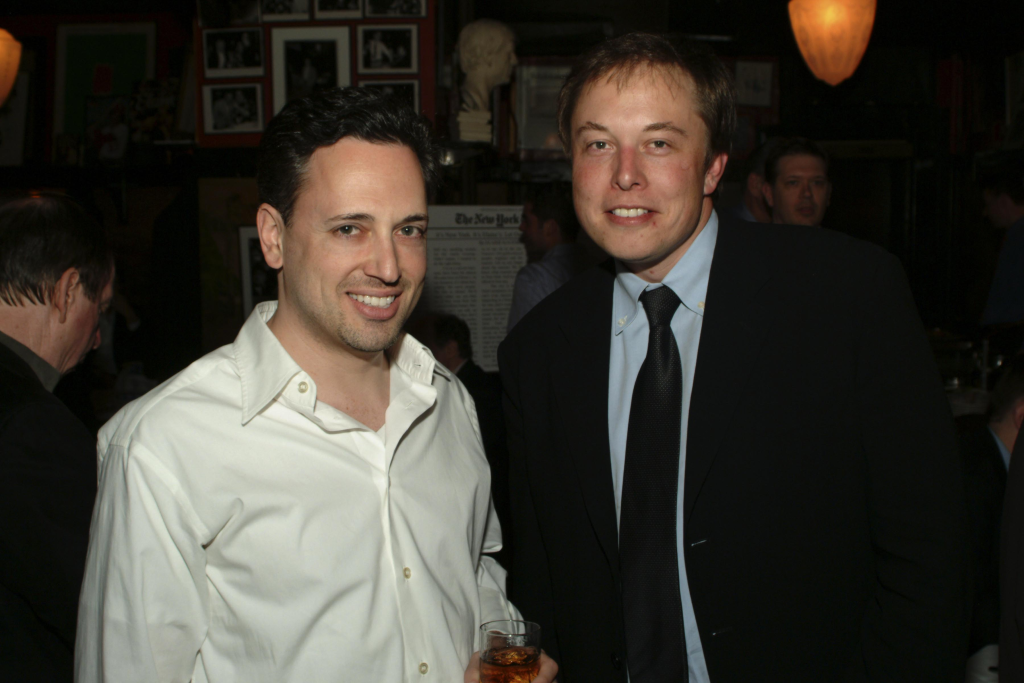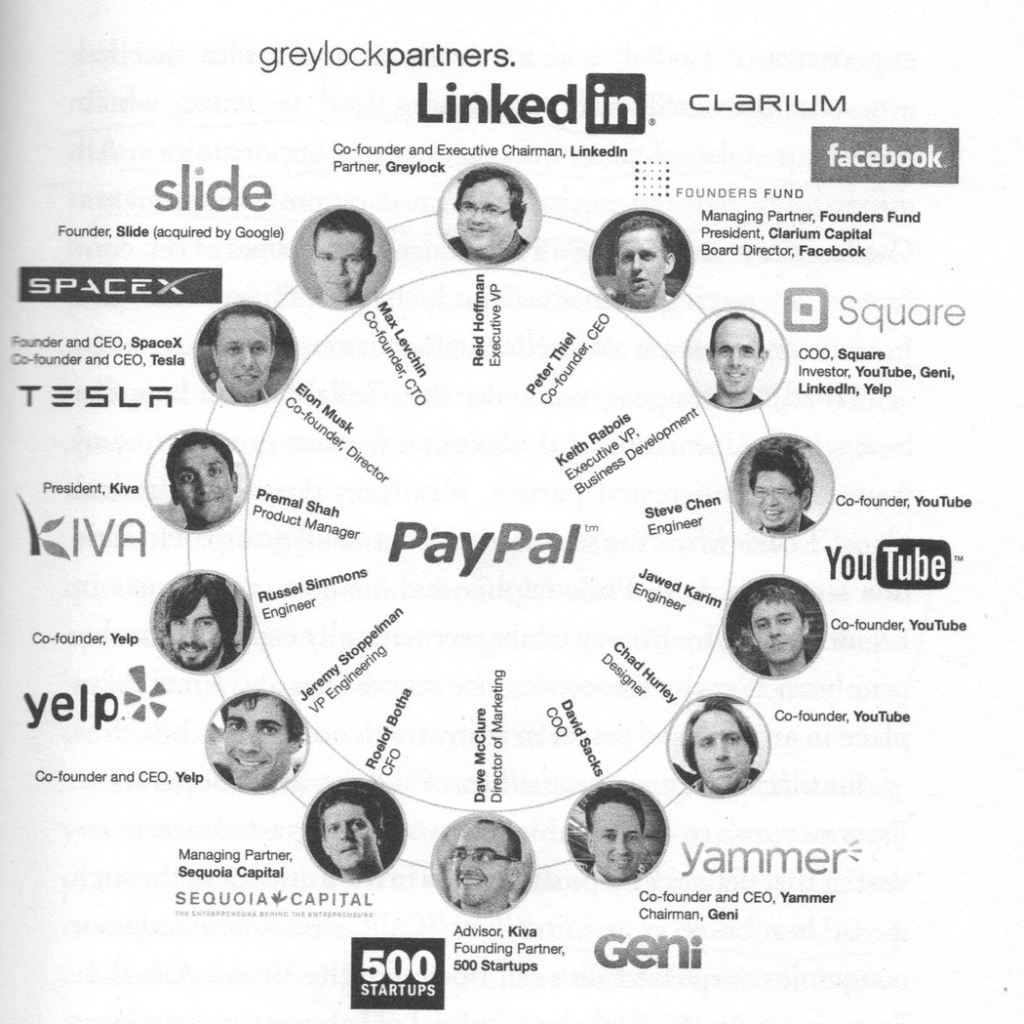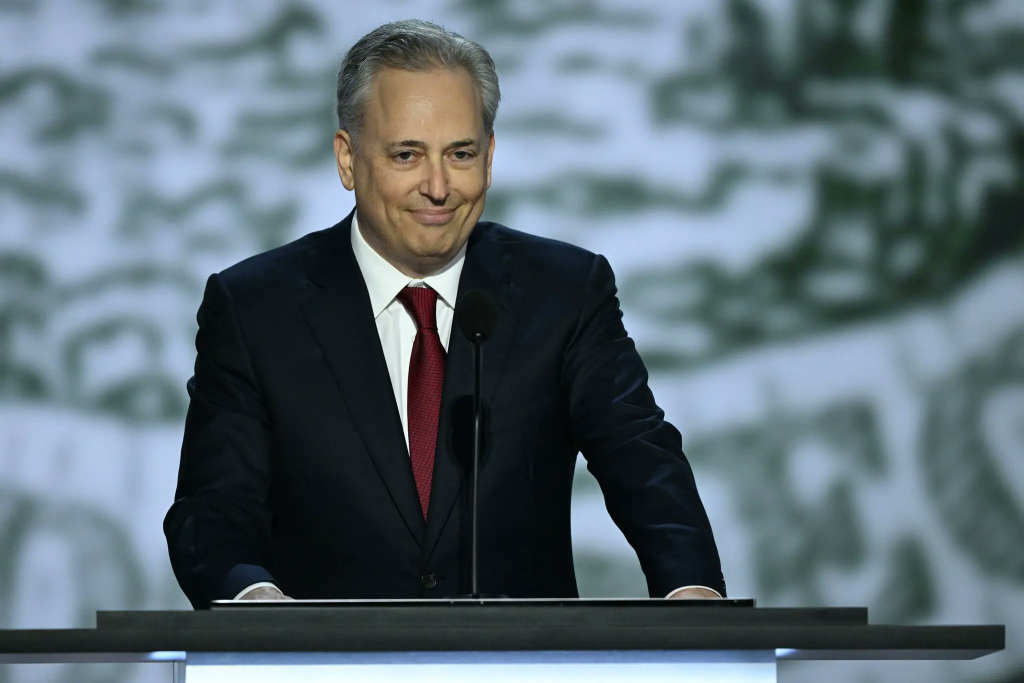David Sacks: From PayPal to Power – The Story of Tech’s Most Influential Network
At the young age of 27, David Sacks was instrumental in constructing what would become one of the most legendary teams in Silicon Valley history, PayPal’s inner circle. This group would not only develop one of the first successful digital payment platforms but also set the stage for a network that would later influence the tech industry profoundly.

In 1999, during the height of the dot-com boom, Sacks left his position as a McKinsey consultant to join Confinity, a small startup that would eventually merge with X.com, led by Elon Musk, to form PayPal. This decision marked the beginning of his journey in creating tech’s most powerful network.

The PayPal Mafia: A Network of Titans

By the age of 32, David Sacks had not only built PayPal but also had the likes of Elon Musk, Peter Thiel, and Jack Dorsey in his contact list. This collection of individuals, famously known as the “PayPal Mafia,” became a pivotal force in Silicon Valley.

In 2001, PayPal faced severe existential threats when Visa and Mastercard filed 37 lawsuits against them, and Russian hackers were stealing $3 million daily from the platform. To combat these issues, David Sacks introduced the IGOR fraud analytics system and built direct relationships with the FBI through weekly meetings, significantly enhancing PayPal’s security measures.
After eBay’s acquisition of PayPal in 2002 for $1.5 billion, Sacks received $1.2 million in cash and $32 million in stock, but the real treasure was the network of 220 former PayPal employees who went on to found or invest in groundbreaking companies like Tesla, LinkedIn, YouTube, and Palantir. This network became the bedrock of Silicon Valley innovation.
The Disappearance and Reemergence
After the PayPal era, there was a period where it seemed David Sacks had disappeared from the spotlight. However, this was merely the calm before the storm. In 2006, Sacks made a bold move by launching Yammer at a TechCrunch hackathon.
His first investors included PayPal alumni Peter Thiel who invested $500K, Keith Rabois with $250K, and Max Levchin contributing $100K, showcasing the strength and loyalty of the network he had cultivated.
Within ten days, 10,000 companies were using Yammer, and by 2012, Microsoft acquired it for $1.2 billion, further cementing Sacks’ reputation as a visionary in tech.
Craft Ventures: A New Chapter
The acquisition of Yammer was just a precursor to Sacks’ next venture. In 2017, he co-founded Craft Ventures with an initial fund of $350 million, focusing on founder-to-founder investing. This fund included 28 PayPal alumni as Limited Partners (LPs), leveraging his extensive network to back promising startups.
His early investments through Craft Ventures included notable names like Affirm, Bird, ClickUp, and Sourcegraph, all of which achieved significant valuations or went public, highlighting his continued influence in the tech ecosystem.
Innovating Venture Capital with Rolling Funds
In 2020, David Sacks pioneered “Rolling Funds” on AngelList, a revolutionary approach to venture capital that allowed for quarterly capital calls, public fundraising under 506c, and a structured investment model with a 25% carried interest. This innovation transformed the venture capital landscape, making it more accessible and dynamic for investors and founders alike.
Today’s Influence: Building Networks
Today, David Sacks is recognized for building one of the most powerful networks in tech, with 8 unicorns, over 300 investments, and a combined value exceeding $500 billion. His strategy revolves around weekly dinners with founders, direct access to major tech CEOs, and a philosophy of adding value first, giving equity to build loyalty, and creating focused social groups. His playbook for network building is clear: leverage relationships to foster growth and innovation.
A New Role in Government

In a surprising turn of events, President-elect Donald Trump has appointed David Sacks as the White House AI & Crypto Czar. His mission is to make the U.S. a global leader in AI and cryptocurrency, develop a legal framework for crypto, and influence science and tech policy at the highest levels.

Serving as a “special government employee,” Sacks will work up to 130 days per year, continuing his roles at Craft Ventures and as a co-host of the “All-In” podcast, thus leveraging his network to shape the future of American technology policy.
Building Your Own Network
Inspired by Sacks’ journey, one might wonder how to build a similar network. The principles are straightforward yet profound: always add value first, collaborate with ambitious individuals, and build loyalty through shared success. Networks compound over time, unlike products which depreciate.
This narrative of David Sacks not only tells the story of a tech titan but also serves as a blueprint for anyone looking to create influential networks in any industry. His shift towards crypto is particularly intriguing, showcasing his foresight in embracing emerging technologies.
As we watch how his role as the White House AI & Crypto Czar unfolds, it’s clear that David Sacks continues to influence not just Silicon Valley but now, potentially, the entire technological landscape of the United States.